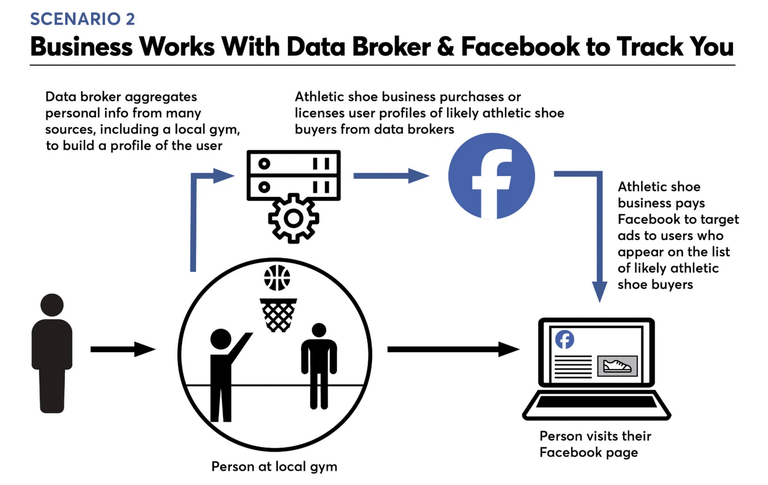https://www.lifegate.it/facebook-dati
- |
“Is my smartphone listening to me?”, is a question that many people have asked themselves at least once in their life, a question that arises spontaneously in those slightly disturbing moments in which we see an advertisement for a product we have just talked about appears on some social network with someone.And which, we swear, we have never searched on Google.On some occasions, this type of coincidence is too strong to hide the conspiracy, and therefore: the smartphone listens to us.He has to do it.Or maybe it's the Facebook, Instagram and Tiktok apps spying on us.
Or maybe not.
Our smartphone doesn't listen to us, but...
Actually, this theory has been debunked and disproved many times.No, therefore, smartphones don't listen to us, they can't do it and if sometimes advertising seems to read our minds, or spy on our conversations, it's because social networks' tracking and profiling systems are much more capable than we think.It's not about magic, of course:that of Meta, the group that includes Facebook and Instagram, among other services, is among the most sophisticated and powerful advertising services on the web and in the world.And Meta doesn't work alone:as the magazine discovered ConsumerReports (here is the report), which carries out impartial tests on products and gives advice to consumers, each user is followed and studied by thousands of companies of all sizes, who in turn sell the data collected to Facebook.
Our data sold by “brokers”
The study, which was carried out in collaboration with the site The Markup, involved 709 volunteers;in all, the companies that kept information on them were more than 186 thousand.In one case, the document states, around 48 thousand companies had data on one of these volunteers.The average value is astonishing:for each participant there were 2,230 such companies, ready to sell information to Facebook.In one of the scenarios cited as an example, a user who downloads a mobile game produces data and information that passes from the server linked to the game and ends up on Facebook;in other cases they act as intermediaries real data “brokers”., who buy information on members of a sports center and then resell it to a manufacturer or retailer of sneakers, who uses it to create more precise sales targets, who ends up buying advertising space on Facebook.

One of these brokers, a company called LiveRamp, appears in 96 percent of participant data.The investigation was carried out in the United States for the local public and shows the presence of both huge companies (Walmart, Amazon, Home Depop) than of much smaller realities and “surprisingly well represented,” as in the case of a small-town Texas car dealership that “covered ten percent of the study volunteers alone.”
The Markup website recalled that anyone can see, and download, a file with all the data that third-party companies have sent to Facebook by visiting this link.To access the list of external companies that have shared information about you, just click on “Your activities outside Meta technologies” and then on “Recent activity”.After re-entering your password, you can choose “Unlink Previous Activity” to prevent this type of data sharing.Alternatively, from here you can download an archive with all the information that Facebook (Meta) has about you.
